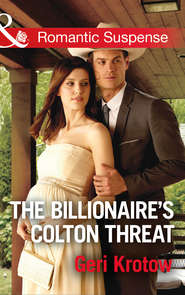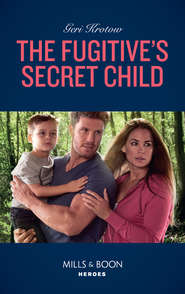По всем вопросам обращайтесь на: info@litportal.ru
(©) 2003-2024.
✖
A Rendezvous To Remember
Автор
Год написания книги
2018
Настройки чтения
Размер шрифта
Высота строк
Поля
Silence fell, and Grandpa Jack just watched her. She looked back at him, unsure of where he was headed with this. Okay, so there were a few years between her aunt’s and father’s births and Grammy and Grandpa Jack’s wedding. That was hardly uncommon during World War II.
Wasn’t he her biological grandfather? Was that the big secret?
“So you weren’t Grammy’s first husband?”
What kind of question was that? she asked herself. How much of a comfort was she to Grandpa Jack now?
Grandpa Jack showed no concern at Melinda’s comment. He laughed.
“Oh, honey, no, that’s not what I’m trying to tell you. Your Dad’s my son, no question.” But he didn’t say anything about Aunt Lille.
Melinda knew she should’ve asked Grammy more about her life, especially after Grammy was diagnosed with cancer last year. But the final date of her divorce from Nicholas loomed, and overwhelmed by the thought of losing Grammy, it hadn’t occurred to her.
She’d been too self-absorbed.
“So why the gap, Grandpa? It was the war, right?”
“I was in a concentration camp.”
The words flew like bullets from a sleek pistol. Quiet. Oh, so smooth.
Shocking.
“But, Grandpa…why? Are you Jewish?”
Melinda had never seen any great religious fervor in Grandpa and Grammy. They were spiritual, and both their children, as well as Melinda, had been raised Catholic, but not in a strict way.
Melinda racked her brain, trying to remember everything she’d learned about concentration camps during World War II. She recalled that more than thirteen million had been slaughtered in the Holocaust. Six million Jews and the rest a mix of Catholics, Gypsies, homosexuals and whoever else didn’t fit Hitler’s grand scheme for the “master race.”
She’d never seen any connections between her grandparents’ lives and what she’d studied.
“No, honey,” her grandfather answered. “I’m not Jewish, but your Grammy and I tried to help the Jews. We also worked against the Nazis when they moved into Belgium, and the rest of Northern Europe, for that matter.”
Grandpa Jack’s statements poured out of him as though he’d spoken of this his entire life.
But Melinda had never heard any of it before. All her grandparents had ever said about their lives prior to arriving in America was that “times were tough. We’re happy to be together now.”
Certainly their son, James, Melinda’s father, had never revealed any knowledge of their past. He just said his parents were from Europe. Aunt Lille had never revealed that she knew anything, either.
“You’re from England, and Grammy was from Belgium, right?”
“Yes, that’s true. But it was unusual for a Brit to meet a Belgian like your grandmother during the middle years of the war. The circumstances we found ourselves in…”
Grandpa Jack’s voice trailed off and he gazed down at the coffee in his cup. He took a swig.
After a moment he said, “Your grandmother kept a journal. Hell, more than a journal—it’s our life together. And her life before she met me. Our tough times, even after the war, here in America. It’s part of your legacy, Melinda.”
“Why didn’t you mention this sooner?” Melinda searched her memory for all the times Grandpa Jack could’ve told her about Grammy’s journal. For that matter, why hadn’t Grammy said anything while she was alive?
“We’ve always been reluctant to talk about the war years.” Jack grew still, his expression somber. “We experienced struggles that, until recently, would’ve been unimaginable to you, to your parents.”
Melinda knew what he meant. Until September 11, 2001, most North Americans wouldn’t have been able to fathom the depth of suffering experienced at the hands of the Gestapo in occupied Europe.
“There’s one more thing, my dear. I kept a diary after my release from the concentration camp. I’ve never even shared it with Grammy. She’d already suffered too much by the time I found her again. But you deserve to know both sides of our story.”
Grandpa Jack looked at her and raised his chin. Slightly, but enough for Melinda to read the pride and conviction on his face.
“We went through hell to get our freedom.”
Chapter 2
The heavy, leather-bound journal sat on Melinda’s lap. Pages jutted out from its frayed edges, added later or falling out from age. It was one of several books Grandpa Jack had given to her, all with Grammy’s writing.
Melinda ran her hands over the dark brown cover, as though she could somehow sense Grammy’s love, feel her presence.
God, she missed Grammy so much.
As an adult she should be past needing her grandmother’s affection. Most of her friends and colleagues had lost their grandparents far sooner than she.
Yet the long talks and the hours spent cooking and baking together were all woven into the fabric of her life with Grammy. She just wanted to be able to pull out that blanket one last time.
A tear slipped from her eye and Melinda blinked.
She’d cried enough these past few years, hadn’t she?
If not about Nicholas, then about Grammy.
Nicholas.
She glanced around the Victorian home they’d restored in the early years of their marriage. The floral wallpaper in the living room reminded her of her neglected rose garden, out back. She and Nicholas had made love there on more than one occasion, in the gazebo.
What had brought that memory to the surface?
She swiped at her tears. Maybe coming home to Buffalo hadn’t been the best idea, after all.
But Grandpa had called. And Grammy’s words called her now.
And no way was Grandpa going to let her stay with him.
Melinda pulled on the leather string that held the journal together. Despite the cracked condition of the book, the string ran soft and supple through her fingers. She whispered a quiet prayer, lifted the old leather cover…and saw a large cream envelope with her name written on it in Grammy’s shaky cursive.
Melinda
The envelope was fairly new.
Grammy had left her one final birthday card, perhaps? She’d turned forty a week ago, and Grammy had always made it a point to celebrate Melinda’s birthday. Even when she’d been on assignment in D.C. last year, Grammy had sent balloons and chocolate to her one-bedroom efficiency condo.
Melinda opened the envelope. The edge of the flap gave her a paper cut but she paid no heed.











